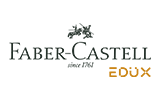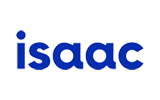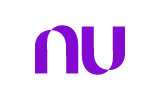Khan Academy will reach more Brazilians
por Redação  18 de janeiro de 2013
18 de janeiro de 2013
 If Brazil was already one of the countries with higher access numbers on Khan Academy in the world, after Salman Khan’s visit around, the tendency is that this flow will only increase. This expectation is not for nothing. First, the government attempted an approach with the educator, proposing that he took part in federal initiatives and promising to use his classes in the public education. Subsequently, Lemann Foundation has closed a global deal that should allow more videos to be translated and the content to be adapted to the Brazilian reality. Besides, the educator stamps his passport back to the United States leaving a planted seed: education cannot be as it used to be and the physical spaces of schools must be reassessed, as well as certification and evaluation processes. Great changes are coming, he assures.
If Brazil was already one of the countries with higher access numbers on Khan Academy in the world, after Salman Khan’s visit around, the tendency is that this flow will only increase. This expectation is not for nothing. First, the government attempted an approach with the educator, proposing that he took part in federal initiatives and promising to use his classes in the public education. Subsequently, Lemann Foundation has closed a global deal that should allow more videos to be translated and the content to be adapted to the Brazilian reality. Besides, the educator stamps his passport back to the United States leaving a planted seed: education cannot be as it used to be and the physical spaces of schools must be reassessed, as well as certification and evaluation processes. Great changes are coming, he assures.
“Problems in Brazil and in the US are very similar. Bu there, there is not so much hunger for change as I see here. In ten years, I hope Brazil becomes a case to be studied”, says Khan, who revealed plans for his platform. “We are beginning to work seriously with internationalization and regionalization of content. We have the two best people in the world with us on this”, he stated. Although, “in the end, math is math” as he joked, Khan Academy proposes an adaptation so that its tools get closer to the variety of national curricula.
In this topic, with the help of Lemman Foundation, the effort on Brazilian content is beginning. Until now, Lemman has translated 400 videos into Portuguese and the forecast is that, in the next months, this number reaches 1.000. The partnership, which should last for five years, not only will accelerate the translation process, but will also work towards the harmonization of curricula with national realities – be them Brazilian or other countries’. “Brazil and other places around the world will benefit from this”, said Deniz Mizne, the Foundation’s Executive Director, while announcing the agreement.
Besides this expansion, another perspective with which Khan has been working is improving its assessment tools. So far, besides videos (if you want to know how the classes are, check out the chart developed by Porvir), the platform will also have math exercises. The intention is that they may encompass other subjects, with a challenge of also including humanities – area in which Khan has decided to venture lately.
Planted Seeds
The discussion on how to adapt the tools that have been developing present education necessities permeates all of Khan’s speech. For him, the educational processes should become more and more personalized and attentive to individual capabilities. Because of that, amongst the changes he defends for the future of education is the end of classrooms divided by grades and classes based on subjects. “Why not have, instead of one teacher speaking to 30 students, seven teachers interacting with 200 students in a big hall where each students learns on his/her on pace?”. In spite of the polemic, the proposal is not futurist: Khan refers to classrooms that already exist around the world, and are being pointed out as trendsetters by specialists, as is the case of Campos Salles School, in Heliópolis, already showcased by Porvir.
Khan dares to incite these discussions on diplomas and the expensive American superior education. On his account, diploma should lose importance, once “it says little about one’s real competences”. The ideal, he says, would be to create specific assessments for different abilities that would certify if the person know how to program or if he/she is a good communicator, for example. “When we hire somebody, we generally choose the one with a good college on the CV, but that does not guarantee that he/she will have the skills you look for. We choose a Harvard student because it’s Harvard, not necessarily because he/she is the best, which increases inequality”.
With these competences certifications, Khan suggests, it would be possible to decrease access inequality. “A Harvard student or somebody who has taken online learning or has learnt things practically would have the chance to obtain the same certification. Which, probably, would also lower high university costs, in universities that would be competing with each other on other free learning forms”.
Translated by Renato Dias











